Filter by
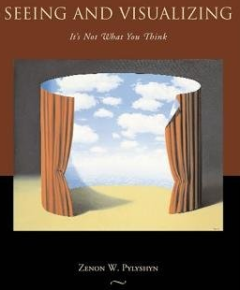
Seeing and Visualizing: It's Not What You Think
"Dalam Seeing and Visualizing Zenon Pylyshyn berpendapat bahwa melihat berbeda dari berpikir dan melihat bukanlah, seperti yang tampak secara intuitif, menciptakan replika batin dunia. Pylyshyn meneliti bagaimana kita melihat dan bagaimana kita memvisualisasikan dan mengapa penjelasan ilmiah tidak selaras dengan cara proses-proses ini tampak bagi kita "dari dalam." Dengan demikian, ia membahas …
- Edition
- -
- ISBN/ISSN
- 9780262316316
- Collation
- 1 online resource (xviii, 563 pages)
- Series Title
- Life And Mind: Philosophical Issues In Biology And Psychology
- Call Number
- 152.1 PYL s
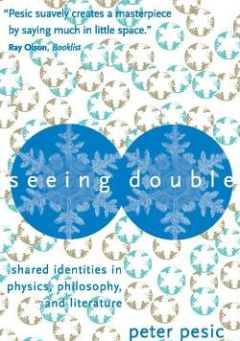
Seeing Double; Shared Identities in Physics, Philosophy, and Literature
"Keterpisahan dan keterhubungan individu mungkin merupakan pertanyaan utama kehidupan manusia: Apa sebenarnya individualitas saya? Sejauh mana keunikannya? Sejauh mana individualitas itu dapat dibagikan, dan bagaimana? Dari waktu ke waktu, sains modern telah menambahkan teori kuantum yang aneh, yang mensyaratkan bahwa partikel dasar yang menyusun segala sesuatu tidak memiliki individualitas sam…
- Edition
- -
- ISBN/ISSN
- 9780262281492
- Collation
- 1 online resource (184 pages) :
- Series Title
- Identity (Psychology)
- Call Number
- 100 PES s
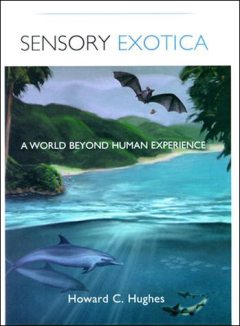
Sensory Exotica; A World beyond Human Experience
Panduan menghibur untuk kemampuan sensorik yang eksotis dari makhluk nonmanusia di Bumi. Serangga dan hewan tertentu seperti lebah, burung, kelelawar, ikan, dan lumba-lumba memiliki indra yang jauh melampaui ranah pengalaman manusia. Contohnya termasuk ekolokasi, sistem navigasi internal, dan sistem yang berbasis biolistrik. Dalam buku ini Howard C. Hughes menceritakan kisah tentang indra "ekso…
- Edition
- -
- ISBN/ISSN
- 9780262275866
- Collation
- 1 online resource (344 pages)
- Series Title
- Senses and sensation
- Call Number
- 152.1 HUG s
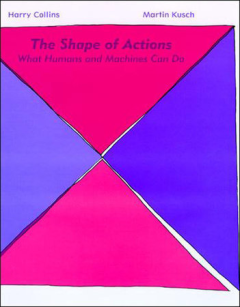
The shape of actions; What Humans and Machines Can Do
Apa yang dapat dilakukan manusia? Apa yang dapat dilakukan mesin? Bagaimana manusia mendelegasikan tindakan kepada mesin? Dalam buku ini, Harry Collins dan Martin Kusch menggabungkan wawasan dari sosiologi dan filsafat untuk memberikan jawaban baru atas pertanyaan-pertanyaan yang semakin penting ini. Para penulis mulai dengan membedakan antara dua jenis dasar perilaku yang disengaja, yang merek…
- Edition
- -
- ISBN/ISSN
- 9780262270687
- Collation
- 1 online resource (xi, 212 pages) :
- Series Title
- Automation
- Call Number
- 155.2 COL s
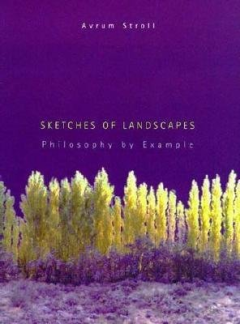
Sketches of landscapes; Philosophy by Example
Avrum Stroll menerima tradisi kuno bahwa salah satu tugas filsafat adalah memberikan penjelasan akurat tentang ciri-ciri dunia, baik yang bernyawa maupun yang tidak bernyawa. Namun, ia berpendapat, karena ciri-ciri ini sangat kompleks, tidak ada satu teori atau model konseptual pun yang dapat memberikan penjelasan yang lengkap. Pendekatan Stroll bersifat sepotong-sepotong dan berorientasi pada …
- Edition
- -
- ISBN/ISSN
- 9780262284516
- Collation
- 1 online resource (xiv, 282 pages)
- Series Title
- Description (Philosophy)
- Call Number
- 113 STR s
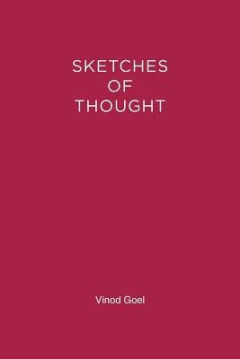
Sketches of thought
Sebagian besar kognitif berada di luar pemikiran yang jelas dan diskursif, di luar jangkauan gagasan komputasional saat ini. Dalam Sketches of Thought, Vinod Goel berpendapat bahwa konsepsi komputasional kognitif tentang dunia mengharuskan proses berpikir kita menjadi tepat, kaku, terpisah, dan tidak ambigu; namun ada sistem simbol yang padat, ambigu, dan tidak jelas, seperti membuat sketsa, me…
- Edition
- -
- ISBN/ISSN
- 9780262273985
- Collation
- 1 online resource (xv, 279 pages)
- Series Title
- Cognitive science
- Call Number
- 153 GOE s
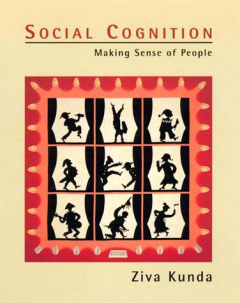
Social Cognition; Making Sense of People
Ziva Kunda menyediakan survei penelitian dan teori yang komprehensif dan mudah diakses tentang kognisi sosial pada tingkat yang sesuai untuk mahasiswa sarjana dan pascasarjana, serta peneliti di lapangan. Bagaimana kita memahami orang lain dan diri kita sendiri? Apa yang kita ketahui tentang orang-orang yang kita temui dalam kehidupan sehari-hari dan tentang situasi di mana kita bertemu dengan …
- Edition
- -
- ISBN/ISSN
- 9780262277761
- Collation
- 1 online resource (xi, 602 pages) :
- Series Title
- Cognitive Psychology
- Call Number
- 153.4 KUN s
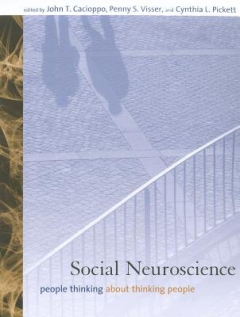
Social Neuroscience; People Thinking about Thinking People
Ilmu saraf sosial menggunakan metodologi dan alat yang dikembangkan untuk mengukur fungsi mental dan otak guna mempelajari kognisi sosial, emosi, dan perilaku. Dalam koleksi ini, John Cacioppo, Penny Visser, dan Cynthia Pickett telah menyatukan kontribusi dari para psikolog, ahli saraf, psikiater, ahli radiologi, dan ahli saraf yang berfokus pada dasar-dasar neurobiologis dari pemrosesan inform…
- Edition
- -
- ISBN/ISSN
- 9780262303088
- Collation
- 1 online resource (xiii, 304 pages) :
- Series Title
- Cognitive neuroscience
- Call Number
- 153 CAC s
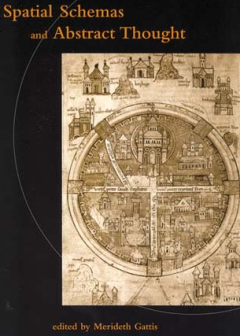
Spatial schemas and abstract thought
Manusia dan hewan lain bergantung pada kemampuan mereka untuk memahami dan merepresentasikan aspek spasial dunia. Kita mempelajari skema spasial dengan mengamati lokasi dan gerakan objek (termasuk orang) dan konfigurasi lingkungan kita. Buku ini mengeksplorasi peran skema spasial ini dalam tugas abstrak dan nonspasial. Bukti menunjukkan bahwa kita mengadaptasi skema spasial untuk tiga tujuan da…
- Edition
- -
- ISBN/ISSN
- 9780262316163
- Collation
- 1 online resource (vi, 352 pages)
- Series Title
- Pikiran Memproses Informasi
- Call Number
- 153.1 GAT s
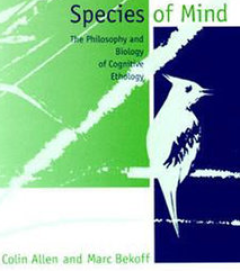
Species of Mind; The Philosophy and Biology of Cognitive Ethology
Colin Allen (seorang filsuf) dan Marc Bekoff (seorang etolog kognitif) mendekati pekerjaan mereka dari perspektif yang menganggap argumen tentang kesinambungan evolusi berlaku untuk studi tentang pikiran dan otak hewan seperti halnya untuk studi perbandingan tentang ginjal, lambung, dan jantung. Etolog kognitif mempelajari aspek perbandingan, evolusi, dan ekologis dari fenomena mental hewan. Fi…
- Edition
- -
- ISBN/ISSN
- 9780262267021
- Collation
- -
- Series Title
- Proses Mental
- Call Number
- 153 ALL s
 Computer Science, Information & General Works
Computer Science, Information & General Works  Philosophy & Psychology
Philosophy & Psychology  Religion
Religion  Social Sciences
Social Sciences  Language
Language  Pure Science
Pure Science  Applied Sciences
Applied Sciences  Art & Recreation
Art & Recreation  Literature
Literature  History & Geography
History & Geography